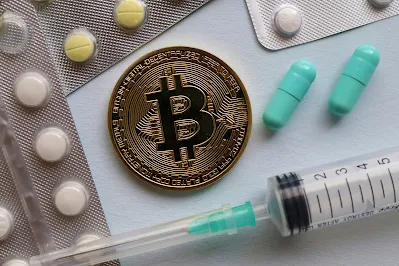Blockchain technology has garnered widespread attention for its transformative role in cryptocurrency, but its potential extends far beyond digital currencies. In healthcare, especially in managing chronic conditions like diabetes, blockchain could be the key to transforming how patient data is shared, secured, and utilized.
So, how exactly could blockchain revolutionize diabetes data sharing, and what does that mean for patients and healthcare providers? Let’s dive into it!
What is Blockchain, and How Does It Work?
At its core, blockchain is a decentralized digital ledger that securely records transactions across a network of computers. The beauty of blockchain lies in its structure: once a piece of data is entered, it cannot be altered without approval from all participants in the network.
This makes it a highly secure and transparent way to store and share information. In the context of diabetes management, this could mean a revolutionary approach to how patient data is accessed and managed by both individuals and healthcare providers.
Blockchain and Diabetes: A Perfect Match?
Diabetes requires constant monitoring, accurate data collection, and collaboration between patients and healthcare professionals.
However, the current systems for sharing medical data are fragmented and often inefficient, creating barriers in delivering timely and accurate care.
Blockchain could fill this gap, offering a unified, secure platform for sharing critical diabetes-related information, including blood glucose levels, insulin use, diet, and exercise logs.
Key Benefits of Blockchain for Diabetes Management
- Enhanced Security & Privacy 🔐 With the rise of data breaches, security and privacy are top priorities for healthcare data. Blockchain’s encryption ensures that only authorized parties can access or modify patient information. This would empower people with diabetes to have full control over their health data, providing peace of mind that sensitive information is protected.
- Improved Accessibility & Control 📱 One of the most significant advantages of blockchain for diabetes patients is the ability to control who has access to their health data. Blockchain allows individuals to grant or revoke access to their information, giving patients more autonomy over their medical records. By sharing real-time data with doctors and specialists, it fosters more effective communication and treatment plans tailored to individual needs.
- Accuracy & Transparency in Data ✅ For diabetes management, even small errors in data can have major implications. Blockchain offers an immutable record of all health data entries, ensuring the accuracy of blood glucose readings, insulin doses, and other vital health information. This transparency allows for easy tracking of historical data and ensures that decisions are based on the most accurate and up-to-date information available.
- Seamless Interoperability 🔗 Diabetes management often requires collaboration across various healthcare providers, from general practitioners to endocrinologists. Unfortunately, disparate healthcare systems can create challenges in sharing data. Blockchain can solve this by enabling different healthcare platforms to connect and exchange data seamlessly. This means that no matter where the patient receives care, their data is readily available and up-to-date.
How Blockchain Could Be Implemented in Diabetes Care
Imagine a world where your blood sugar levels, medication history, exercise routine, and food intake are all securely recorded on a blockchain. Every time you visit a healthcare provider, they can access your comprehensive, up-to-date health data, making it easier to adjust your treatment plan accordingly.
Whether it's tracking blood glucose levels or ensuring insulin adherence, blockchain can help maintain the consistency and accuracy of the data across various platforms.
For example, wearable devices could sync with blockchain, securely uploading your health data in real-time. Healthcare providers could then access this data, ensuring that they have the most accurate and current information for each patient’s visit, thus improving treatment efficacy and reducing potential risks.
What’s Next for Blockchain in Diabetes Management?
While blockchain is still emerging in the healthcare sector, its potential to change diabetes management is exciting. The ability to securely and transparently share health data could significantly improve the management of diabetes, offering patients and healthcare providers a robust tool to make more informed decisions. As technology continues to evolve, we could see even more innovative uses of blockchain in healthcare.
The key takeaway here? Blockchain isn’t just for cryptocurrency—it could very well become a cornerstone in the future of diabetes care.
By providing a more secure, transparent, and efficient way to manage health data, blockchain can empower patients and doctors alike, leading to better health outcomes and more personalized care.
These are the questions the post answers:
- How can blockchain improve the sharing and management of diabetes data?
- What are the key benefits of using blockchain for diabetes care and patient security?
Related Content:
- How to Manage Post-Inflammatory Hyperpigmentation (PIH): Exploring the skin condition PIH and ways to manage it.
- The Role of Potassium in CKD: New Insights in 2025: Potassium's vital role in kidney health, especially for CKD patients.
- How Stress Affects CKD Progression and What You Can Do About It: Delving into the connection between stress and CKD progression.
- Kidney Disease and Pregnancy: Risks and Management Tips: Insight into managing kidney disease during pregnancy.
For personalized services and content creation, please contact me at admin@healthyspell.com.

0 Comments
Post a Comment
Share your views